Most musicians who attain accolades and fame do so because they have helped originate or perpetuate one particular form of musical expression. Rare is the individual who can be said to have watered the roots of multiple genres in his lifetime. For English Heavy Metal Guitarist Bill Steer, a quick look at the bio shows that his agile fingers and limitless imagination has done just that. Be it his central role in the emergence of Grindcore during his time with Napalm Death and the early days of Carcass, his igniting of the Melodic Death Metal genre as far back as 1993 with the latter band’s Heartwork masterpiece, or the blossoming of Death-n-Roll with Swansong era Carcass and the Blues-infused Firebird years, Steer has so often been at the wheel for excursions into the unknown that it kind of gets taken for granted.
Carcass disappeared for a relatively long stretch, which in today’s fast-paced, over-saturated internet world, can strike a person’s name from immediate recall fairly easily. When a glorious return to playing shows resulted in 2012’s stunning comeback album, Surgical Steel, the names of Bill Steer and Jeff Walker (vocals/bass guitar) came roaring back into the discussion. Carcass was back, rounding out their new lease on life with Guitarist Ben Ash and Drummer Dan Wilding, two guys with the chops and the energy to keep pace with the steely, restless duo. Here, at the tail end of a lengthy tour cycle to promote Surgical Steel, we caught up with the soft-spoken Bill Steer for a discussion of the music business, past and present, the immediate future of Carcass, and more.
CrypticRock.com – It has been almost four years since Surgical Steel was released, an album that proved to be one of the best ‘return from a lengthy hiatus’ albums perhaps ever released. Reflecting on it now, and the critical regard and success the album has brought you, are you surprised by this, or do you not truly care about such accolades? Did you know you had something special when you were writing it?
Bill Steer – I definitely do care, that’s for sure. We felt comfortable the album was valid. We felt we put together a strong body of work, as it were. But we didn’t anticipate that level of attention. We thought it would be of minority interest to the hardcore Carcass fan-base, and we figured that anybody else was just gonna pass it by really.
You know, it’s a very cynical time and things are very saturated in the Metal world, anyway. It’s almost like there’s more bands than ever, it feels that way. People had every reason to be skeptical as to whether we could come back with something that was worth listening to. So we totally understood all that. To see the amount of press we got, and just to meet people on tour who seem to like the record, that’s been quite mind-blowing really. I feel totally grateful, how lucky – I mean timing is everything in this business, and we’re lucky that somehow we seemed to do the right thing at the right time. Which is unusual for us, cause if you look at our history we always did the wrong thing (laughs).
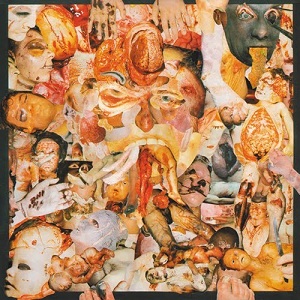
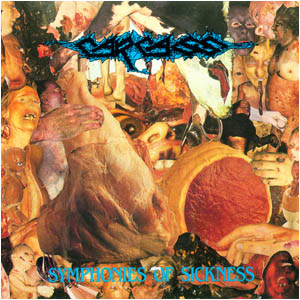
CrypticRock.com – Just in the way that you guys started as one thing and then morphed into something else, repeatedly, is quite an admirable thing looking back, but it certainly served to confound the press and the fans at the time. You, as a guitarist, have become known for many differing styles of playing, be it the Proto-Grindcore of the early days with Napalm Death and early Carcass, the bluesy Rock-n-Roll of Firebird and Gentleman’s Pistols, or the thrashed up, melodic and progressive Death Metal of mid-era Carcass. In which style would you say it is harder to write a good, catchy song?
Bill Steer – With Gentleman’s Pistols, that’s entirely James Atkinson’s baby, so he writes everything. My contribution is to play lead guitar, come up with a few harmonies. In Firebird, I wrote a lot of that music. I would say the bluesy Rock is harder, because so much of that has been done. It’s a style that stretches back to the late ’60s. So if you can still create something interesting in that genre now, you’re really onto something. With James and Gentleman’s Pistols, the stuff he writes for the band is fantastic, I think, and he definitely contributes something of worth to that style. There’s a lot of people doing the so-called Retro-Rock thing, and to me a lot of it feels like a retread, or a fancy dress party. You’ve got to be steeped in it, and also have the guts to take it forward and put your own stamp on it, cause there’s no point in just trying to create a museum piece. There’s enough of that already.
With the Extreme Metal world, that music is difficult in a different way. Just technically, I mean Carcass is not a super technical band. There’s elements of that to what we do, and then there’s bands out there doing incredibly difficult stuff. I guess the challenge is to make something that lasts and will reach a few people. We never thought, with Carcass, that we’d be in this position now. I don’t know about Jeff, but I never looked that far ahead. In my twenties, I never thought I’d be touring The States now, that people would be interested, we just didn’t have the vision for it. It’s very nice, it’s vindicating to me.
CrypticRock.com – You were among a small group of people that helped spearhead whole sub-genres of Metal, be it the early grind of Napalm Death and early Carcass, the visionary Heartwork album with Carcass, and the Death-n-Roll of the Swansong era giving way to your time with Firebird. These launchpads into uncharted waters, was that something in your mind where you wanted to take what you knew and loved and push it into new territory, or did you simply follow your own muse and write what came out?
Bill Steer – It was more following my own instincts, really. We were very aware that the Death Metal genre was starting to thrive and there were a ton of bands coming up and playing that style. I think we knew that the only way forward for us was to bring some other elements into the music. When I decided to bring in more of the traditional Heavy Metal stuff, or Rock-based influences, I was too young to care whether the audience would accept it. It was more about whether my bandmates would accept it. Fortunately they did, because they were more or less on the same page. By album number three, it was four of us, and we kind of had enough in common to realize things; and we were just too naive to worry about those issues.
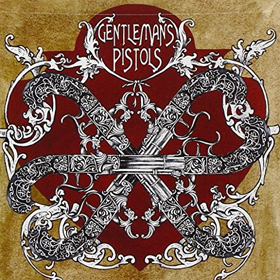
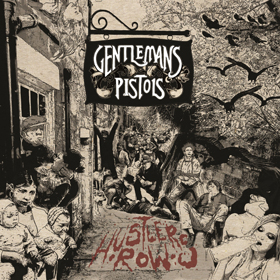
CrypticRock.com – You have to wonder if the fact there were no message boards, no chat rooms, no social media helped in that regard. It seems like, nowadays, fans are right on top of you. Perhaps, back then, it was easier to create separations between what fans expected from you and the bubble within which you wrote the music together.
Bill Steer – I avoid all that social media. The others are all in it, but I guess if you have a strong constitution it doesn’t have to affect you, but I imagine it affects a lot of people when you’re getting a host of opinions all the time, rapidly and continuously.
CrypticRock.com – There is no question it can be overwhelming. Speaking of fans, they are probably starting to think about a follow-up to Surgical Steel by now. Any plans for that?
Bill Steer – Yeah, there’s already a few things in the bag, because Dan Wilding (drums) and myself got together at the start of 2015 and worked on a few tunes that I had, and I think it’s starting to sound really good. I think we underestimated the way the industry is now, and how tuned into it Jeff (Walker – bass guitar, vocals) is. Because he was just plowing ahead, booking more and more shows. So here we are, nearly four years later, still touring. Officially, this is the last cycle. We’ve got the odd festival next year, but there ought to be loads of time to properly get stuck into working and do something. I think I was just stuck in the past. My mindset, come on it’s been two years, we should do a new album. That’s coming from a guy who’s not in tune with the music business. Jeff is the exact opposite of that; that’s his life, keeping up with the way the whole thing’s moving, facts and figures, keeping up with that stuff.
CrypticRock.com – Well, that is exciting news. As far as the new material, are you looking to build upon the razor-sharp, Progressive-tinged Death Metal of Surgical Steel, or will Carcass prove to be as restless creatively as you have been in the past?
Bill Steer – I’m guessing it’ll be somewhere between the two. There’s no way we could do an album that’s that similar to Surgical Steel. Just purely by accident rather than design, we did that album and it kind of summarized the different elements of our history. There’s some stuff on there, that besides the production, is closer to the first two records. Then there’s stuff that’s more like the middle period. Then there’s stuff that reminds listeners of Swansong. That happened quite naturally. I think it was a nice way to sum up our career, and maybe show us a path into the future of our career.
This new stuff, I couldn’t really sum up in words, but things I’d like to tackle musically . . . small stylistic differences, anything we haven’t quite covered. From a guitar sense, the styling of riffs, or the kind of tonality that you’re in, but I think more than anything, drum grooves. With this music, I’ve always been obsessed with drummers. So if you have a great drummer behind you, a really solid groove behind you, there’s a lot of things you can do. There’s been bands that haven’t had great singers or guitarists but had really great drummers, and still sounded good.
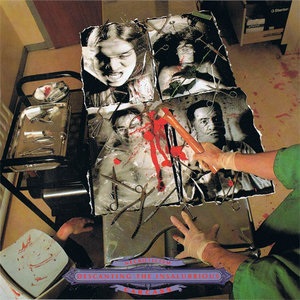
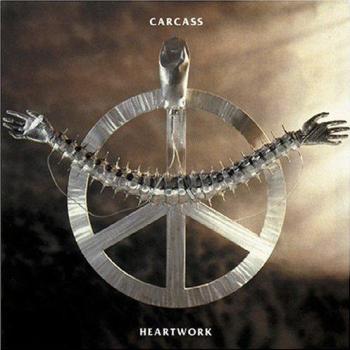
CrypticRock.com – Well you certainly have a good drummer in Dan Wilding (ex-Aborted). You are one of the foremost guitarists in Heavy Metal today, someone who is probably a bit underrated, actually. When did you first pick up a guitar, and what bands or artists ensured that you would never put that guitar down again?
Bill Steer – Well cheers, thank you. Officially, my family was not musical really. Nobody had played instruments that I was aware of. It was just exciting to me really. I remember at first, very early on, clicking with bands like Status Quo and Queen. Then, later on, naturally I gravitated towards the heavy stuff like Motörhead, Saxon, Iron Maiden, Deep Purple, Led Zeppelin, and Sabbath. There were many things that made me want to pick up an electric guitar, such as tapes of Hendrix playing at Woodstock. Maybe even more than that, seeing Alvin Lee from Ten Years After, because he didn’t look like a superstar, but he played some really outrageous guitar stuff. ‘Fast’ Eddie Clarke (Motörhead), Adrian Smith (Iron Maiden), Paul Quinn (Saxon), all those guys really.
CrypticRock.com – You have never mistook Carcass for a political band per se, but Jeff’s lyrics now and again do provide commentary on the overall degradation of humanity (eg. “Keep On Rotting In The Free World,” “Arbeit Macht Fleisch,” “Mount of Execution”). The troubling events in the world, such as Brexit, a Trump presidency, global wars, terrorism, do any of the more troubling events in the world creep into your own consciousness when you’re writing music, or do you wall yourself off from reality while writing music?
Bill Steer – Music is music, for me, definitely, and it’s just down to what comes out when you pick up a guitar that day. Many days, nothing interesting comes out, and then randomly, one day the first thing you play out of the blue casually one afternoon, you’ve got a good riff that takes you somewhere. I think it’s easier for guitarists and drummers, we’re obsessed with our thing; we have stuff that ignites us and makes us want to play.
With Jeff as a lyricist, I think, on Surgical Steel, he exhausted a number of avenues of things that he wanted to talk about. I think the back of his head is like, “Just give me a chance to sort of replenish my sources, go back to the well and draw more influences” – whatever’s gonna spark him off. That’s very much Jeff’s thing. I think it’s a very good outlet for him cause he does have quite a unique way of looking at the world. Some of that comes through the lyrics. I wonder if fans pick up on a lot of it, because some of the lyrics are very verbose. It’s kind of challenging, but there were certain lyrics on the last album, I mean, I was laughing my head off with sheer recognition, because I knew exactly what he was saying and I think he was right on the money.
CrypticRock.com – Understood. You have toured virtually all over the world in your career. Which regions would you say you enjoy playing in the most, and why?
Bill Steer – I think, for this band, the very obvious one would be South America, because of the fervent reaction you get from people down there. It’s really bizarre, and cool, how people down there sing your riffs . . . I mean you can hear them singing the riffs over the PA while you’re playing; 2,000 or 3,000 people – so cool. Also Mexico, you know, they’re very passionate about us. USA has definitely been good to us, you’ve seen how many times we’ve toured this record alone. We feel quite lucky to be able to do this. Japan is another obvious one. When they’re into something, they’re really into it. They know everything about it.
As a tourist, it’s great to be in Japan. Its extremely civilized, but so different from western civilization. So you feel really comfortable, relaxed and safe, but you feel exposed to something you’ve never seen before. Recently we got to play Iceland. That was really beautiful. The people are really interesting too. While driving across the island, we said to ourselves, even if the festival isn’t that good, the trip is justified by being able to drive through and experience that hilly emptiness. It’s so underpopulated and beautiful.
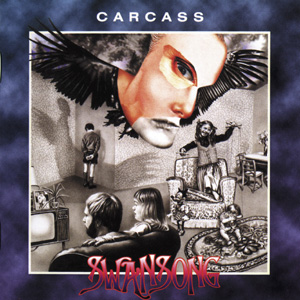
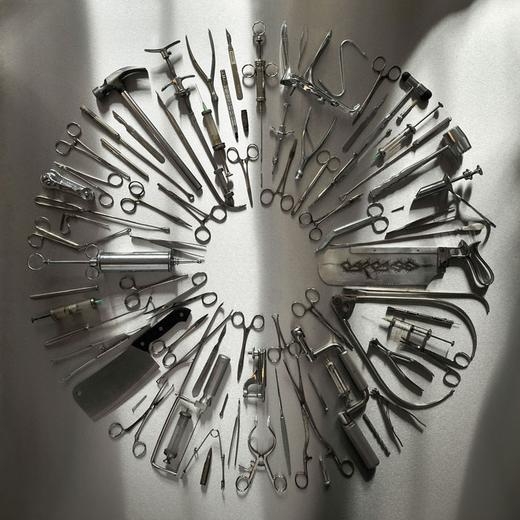
CrypticRock.com – When you look at the music business lately, are you optimistic looking to the future. In a recent interview with Niilo Sevanen of Finnish Metal band Insomnium, he expressed very positive sentiment such that Heavy Metal fans will come through and continue to buy albums and support the scene. Do you think it can ever be as vital and intense as the 1980’s in 2017, or is that type of solidarity and support not possible in the modern world? What do you think the future of underground music holds?
Bill Steer – To a degree I would agree with what he said, because you know you do have to be optimistic. If you’re going to get out of bed in the morning, you have to have a positive outlook. Be a glass half full kind of person. Also, its very hard to make comparisons with the ’80s, cause things were so different. That’s when I started going to gigs, and back then, if you went to a 2 or 3 thousand capacity venue to see Iron Maiden, the vibe was very edgy. People had waited a long time to see the gig. There were no distractions, people didn’t have phones or whatever. You can’t turn the clock back, but we have been fine with album sales. Pretty much, we still sell the same amount of albums now that we did back then.
Out of all the genres, I think Heavy Metal has been the least affected by this. It’s a bewildering time and I think we are still adjusting to the impact of the internet and how it’s affected people’s attention spans and so on, but of course there’s always gonna be live music. In some ways, the internet has boosted that. The fight against downloading has ended. People have accepted it, I mean, in my opinion, it’s probably a good thing. It felt like it increased the value of live music. I mean, you can’t download that; no one is gonna pretend a YouTube clip is the same thing as being there in the room.
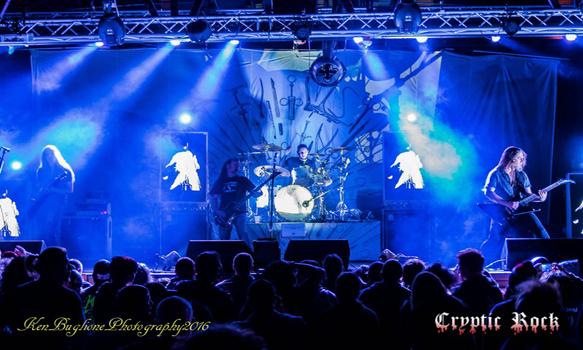
CrypticRock.com – Very interesting point. My last question for you is pertaining to film. CrypticRock.com covers all sorts of music, but also film, particularly in the Horror/Sci-Fi genre. If you are a fan of either genre, do you have any favorites?
Bill Steer – It’s a shame that Ben (Ash) isn’t here, our other guitar player, he’s into that style of film. For me, it didn’t go much past the first two Omen films. They still scare me; there’s a real atmosphere there. Otherwise, I’m really ignorant about Horror. Our old drummer, Ken Owen, was super into underground Horror such as the Italian films, and Faces of Death (1978).
CrypticRock.com – That is very cool. The Italian Horror scene in the ’70s and ’80s was really amazing. How is Ken doing these days? (original Carcass drummer. Ken suffered a severe brain hemorrhage in 1999. He spent nearly a year in a coma and has been convalescing ever since.)
Bill Steer – He’s doing much better. He’s great, he’s been very stable for years. We’re in touch all the time, he has a very good lifestyle and he’s managed to buy himself a new house and lives about 60 seconds walk from his parents. Every hour of his day is mapped out with great activities. He’s been very positive, you know, he went through something that was beyond hell, but he came out the other side and he’s more or less the same person really; same sense of humor. It’s difficult to go back to the age of when this happened, around 29, but that holds true for us all. It’s really inspiring; what his parents have done to guide him along, and now he gets to do things he really wants to do.
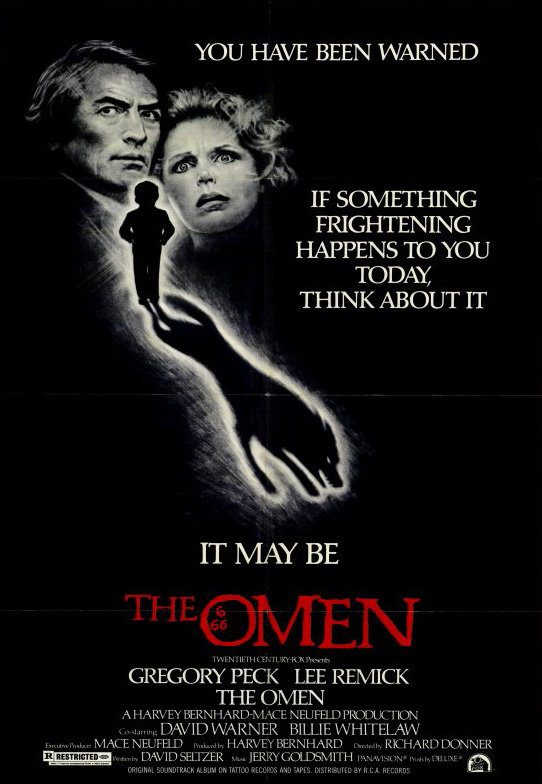

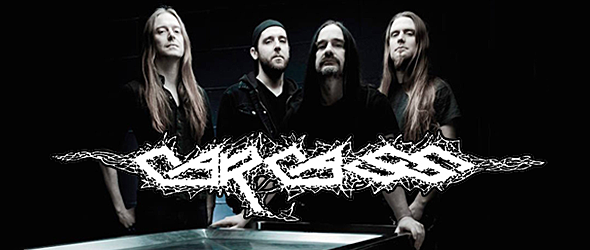

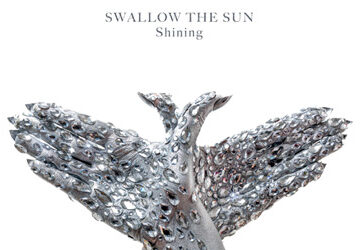



No comment